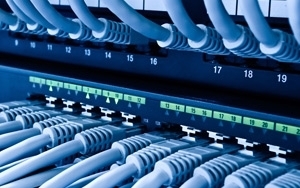
The Federal Communications Commission on Thursday redefined broadband as speeds of at least 25 Mbps downstream and 3 Mbps upstream.
That new standard — a
significant increase from the prior definition of 4 Mpbs downstream and 1 Mbps upstream — means 17% of the U.S. population lacks access to broadband service.
The new definition is
included in the FCC's 2015 annual report on the state of broadband, which the agency voted on Thursday to release. “While significant progress in broadband deployment has been made ... these
advances are not occurring broadly enough or quickly enough,” the FCC said in a statement. “The report concludes that more work needs to be done by the private and public sectors to expand
robust broadband to all Americans in a timely way.”
advertisement
advertisement
A summary of the report states that 53% of rural Americans can't access the Web at speeds of at least 25 Mbps, while 63% of people
living on tribal lands lack access to service at that speed.
Advocacy group Public Knowledge had urged the FCC to redefine broadband as 25 Mbps downstream, as did video provider Netflix. The
cable industry opposed the move, arguing that consumers don't need Internet connections at that speed.
The FCC's redefinition of broadband could make it harder for cable companies and telecoms
to argue that the market is competitive, given that many people only have one option for service at 25 Mbps. A Commerce Department report issued late last year says that even where Internet service of
25 Mbps is available, 37% of U.S. residents are able to choose from two or more broadband providers offering those speeds.
Some observers say that the report also could give the FCC more
ammunition in crafting new Net neutrality regulations, given that the agency can now say that competition is lacking. “It's fair to say it's one of the many factors that [the FCC] will consider,
though not the only one,” Public Knowledge senior staff attorney John Bergmayer says.
The FCC is expected to vote next month on whether to reclassify broadband as a utility service,
which would enable the agency to prohibit broadband providers from charging companies higher fees for faster delivery of their material.